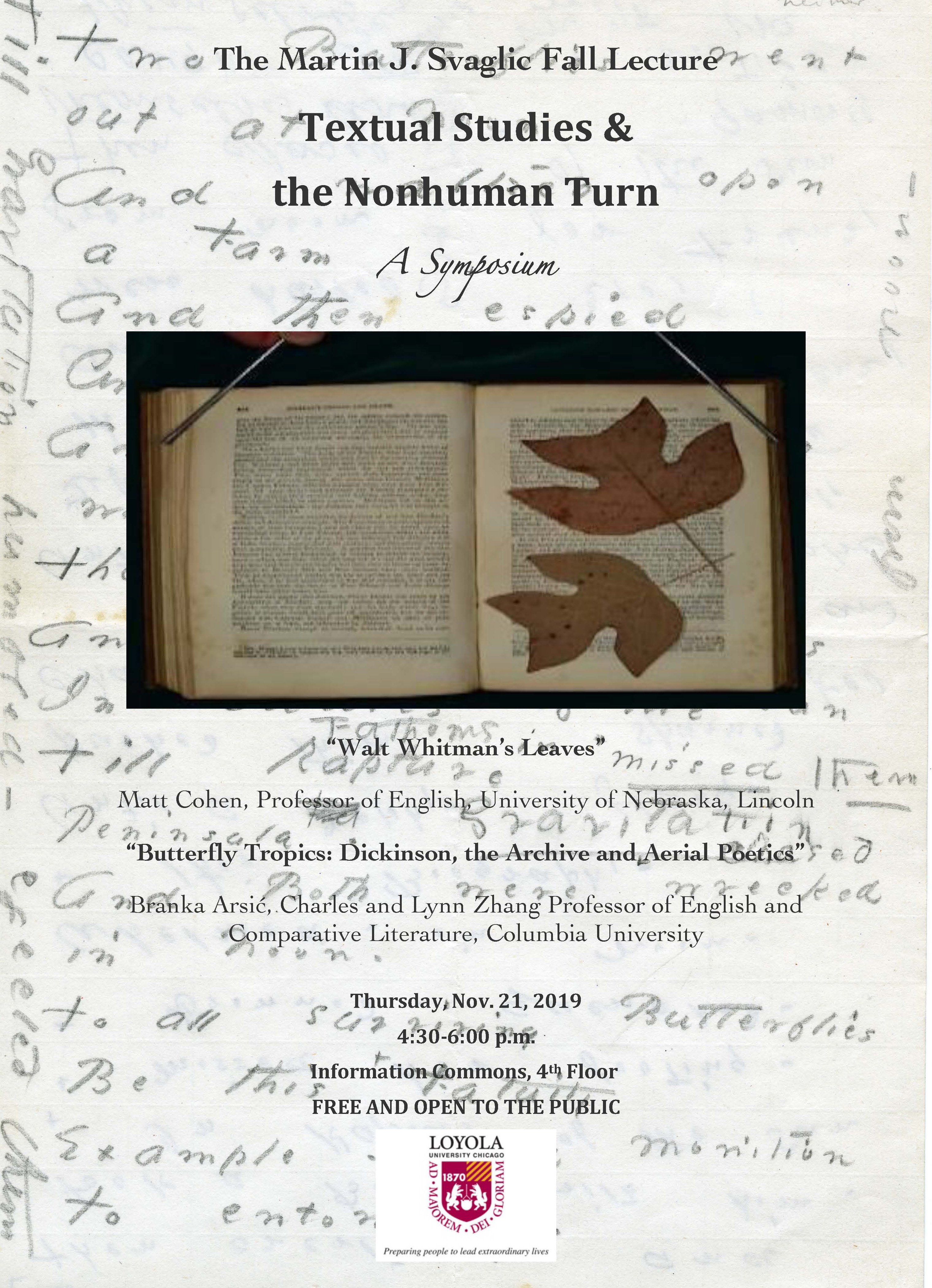The Martin J. Svaglic Symposium
Textual Studies & the Nonhuman Turn
A Symposium
Thursday, Nov. 21, 2019
4:30-6:00 p.m.
Information Commons, 4th Floor

Sponsored by the Matin J. SLavgic Chair of Textual Studies & The Center for Textual Studies and Digital Humanities
Speakers:
Matthew Cohen, Professor of English, University of Nebraska, Lincoln
“Walt Whitman’s Leaves”
Cohen is the author or editor of five books, including most recently Whitman’s Drift: Imagining Literary Distribution, which received the Finneran Award; The Networked Wilderness: Communicating in Early New England (2010); and Colonial Mediascapes: Sensory Worlds of the Early Americas (co-edited in 2014 with Jeffrey Glover). With support from a 2017 National Endowment for the Humanities Fellowship, Cohen is currently writing a book on intercultural theory and method in early American studies, tentatively titled The Silence of the Miskito Prince: Imagining Across Cultures in Early America. He is a contributing editor at the Walt Whitman Archive and director of Cohen Lab, a digital humanities lab at the University of Nebraska, Lincoln.
Branka Arsić, Charles and Lynn Zhang Professor of English and Comparative Literature, Columbia University
“Butterfly Tropics: Dickinson, the Archive and Aerial Poetics”
Arsić is the author of Bird Relics: Grief and Vitalism in Thoreau (2016), which received the MLA James Russell Lowell prize for the outstanding book of 2016.; On Leaving: A Reading in Emerson (2010), and Passive Constitutions, or 7½ Times Bartleby (2007). She is the editor of the critical collections Melville’s Philosophies (co-edited with Kim Evans, 2017) and The Other Emerson: New Approaches, Divergent Paths (co-edited with Cary Wolfe, 2010). Arsić is currently working on two book projects: Ambient Life, Melville, Materialism and the Ethereal Enlightenment, which focuses on images of the elemental, vegetal and animal that traverse Melville's work as a means of investigating how he imagined the capacity of matter to move and transform; and Butterfly Tropics: Emily Dickinson, The Archive and The Lyric, which investigates Dickinson’s obsession with transmutation and invisible continuities among discrete bodies promised by entomological life forms, to raise the question of how such a preoccupation governs her understanding of the poetic form, as well as what it does for her manner of archiving poetry in fascicles, sets, envelopes, letters or, simply, boxes and chest drawers.
Sponsored by the Martin J. Svaglic Chair of Textual Studies &
The Center for Textual Studies and Digital Humanities


